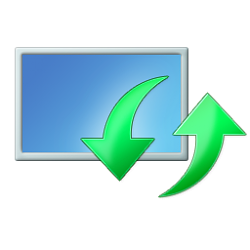- Feb 14, 2005
- 6,210
- 2,552
- 136
That's it. We're done with Windows. The company I work for has already started moving to Android. We produce software and systems for other businesses, so it's nothing an end-user would see, and I'm not here to shill anything.
Our problems started with Windows started with Windows 10. Specifically, the Windows 10 Professional version not being able to disable automatic Windows Updates. There has been more than one occasion where forced updates has caused issues with hardware peripherals. Some catastrophically since some of these devices do not have drivers compatible with the latest version of W10, such as kiosk touchscreens not working due to a forced Windows Update. And many industry specific devices still don't. Not to mention complaints of unprofessional looking systems with games being automatically downloaded to Windows 10 Professional systems.
We're sort of in that "in between" stage where we're not big enough to have our own custom systems, but large enough where we've lost untold hours doing manual labor cleaning up Windows and configuring it for what our customers want. Windows 7 was never this problematic. We could go with embedded versions of Windows 10, but those dramatically increase our costs, because they usually require purchasing very vendor specific hardware.
We've lost untold support hours troubleshooting and fixing issues caused by forced Windows Updates. The latest fiasco caused our software to crash and have printing issues. Hopefully fixed with Update KB5001649. But it should NEVER have come to this. We purchase systems with W10 Pro for a reason dammit. Not to mention I've left some work open, only to come back the next day and greeted by a reboot due to Windows Updates. You win Microsoft. We give up. We're leaving your house.
Our problems started with Windows started with Windows 10. Specifically, the Windows 10 Professional version not being able to disable automatic Windows Updates. There has been more than one occasion where forced updates has caused issues with hardware peripherals. Some catastrophically since some of these devices do not have drivers compatible with the latest version of W10, such as kiosk touchscreens not working due to a forced Windows Update. And many industry specific devices still don't. Not to mention complaints of unprofessional looking systems with games being automatically downloaded to Windows 10 Professional systems.
We're sort of in that "in between" stage where we're not big enough to have our own custom systems, but large enough where we've lost untold hours doing manual labor cleaning up Windows and configuring it for what our customers want. Windows 7 was never this problematic. We could go with embedded versions of Windows 10, but those dramatically increase our costs, because they usually require purchasing very vendor specific hardware.
We've lost untold support hours troubleshooting and fixing issues caused by forced Windows Updates. The latest fiasco caused our software to crash and have printing issues. Hopefully fixed with Update KB5001649. But it should NEVER have come to this. We purchase systems with W10 Pro for a reason dammit. Not to mention I've left some work open, only to come back the next day and greeted by a reboot due to Windows Updates. You win Microsoft. We give up. We're leaving your house.



